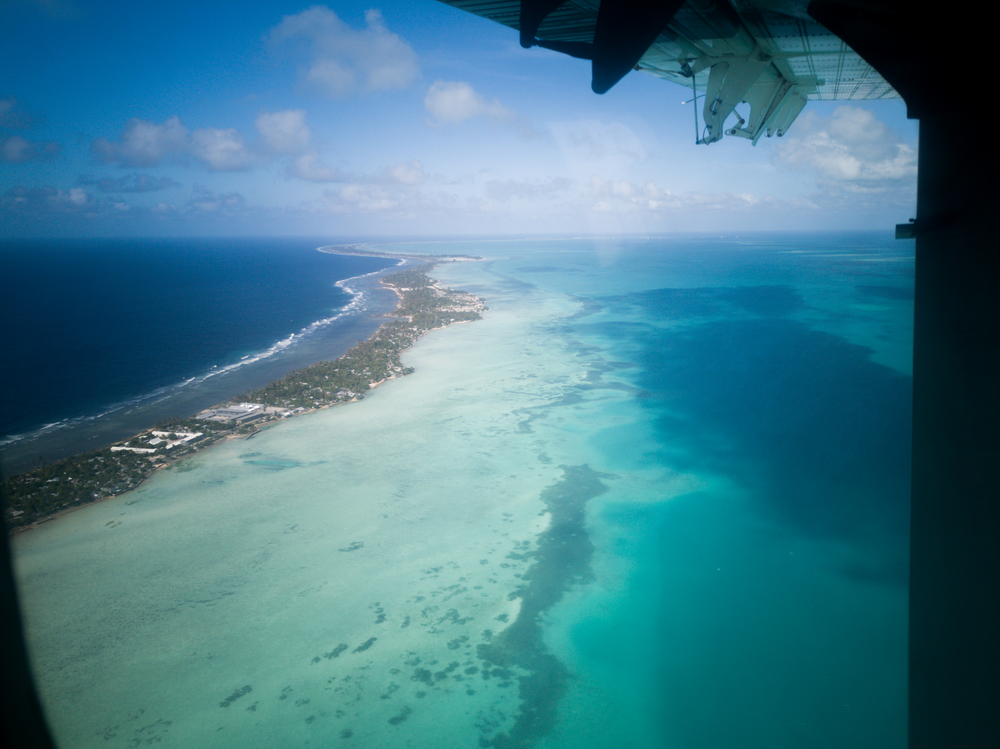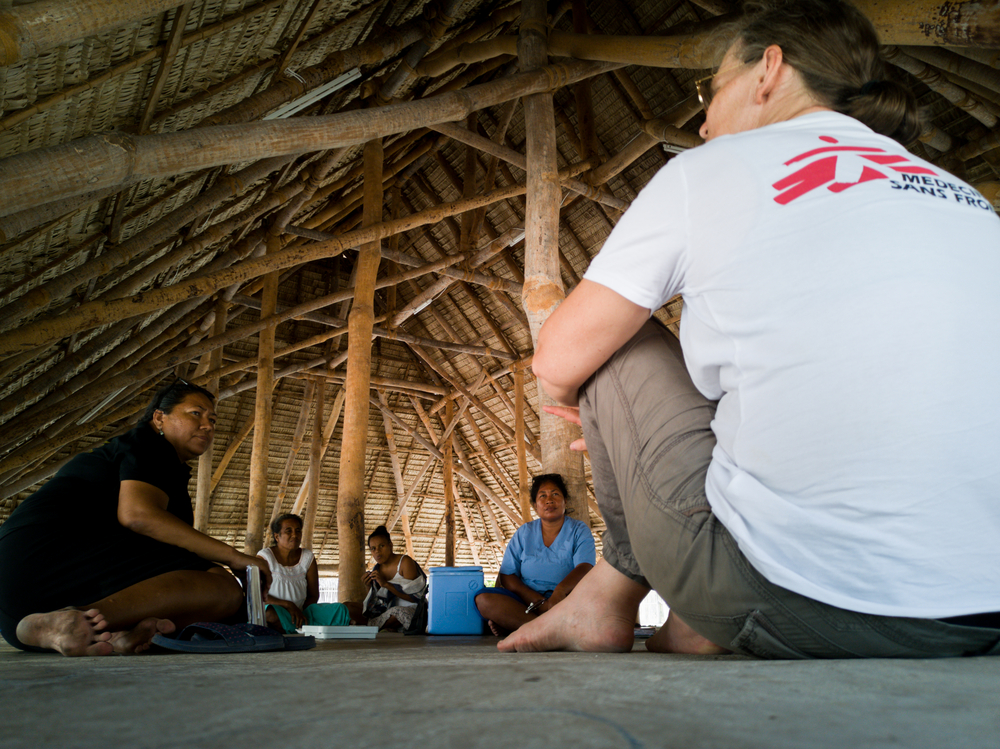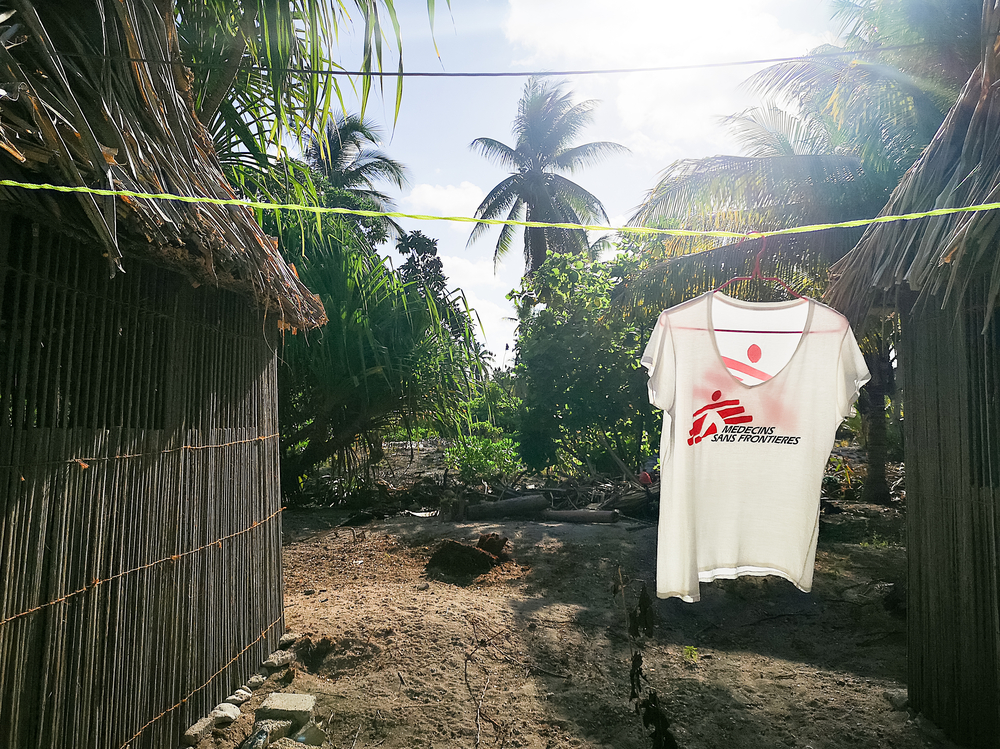Life on a coral atoll: To witness how climate change is changing people’s lives and health

Earlier this year Dr Darren Pezzack, an Australian advanced trainee emergency registrar, was part of the very first Médecins Sans Frontières’ team to work in the Pacific island nation of Kiribati.
“There are the three things that stand out for me from my time in Kiribati. The lack of very basic resources available for healthcare; the amazing and positive attitude of the i-Kiribati doctors and nurses despite this, and the reality that is climate change and the very real impact it is already having on people’s lives.
This was my first assignment with Médecins Sans Frontières. But we were also breaking new ground in the Pacific, so initially we spent quite a bit of time just explaining who we were and how we worked, what we were there to do, and how we were different from other donors in terms of our independence and neutrality.
Our focus was strengthening COVID-19 preparedness and response, particularly for critically ill patients, as well as supporting critical care and reviewing what kind of support might be useful going forward to enhance primary health care.
Impact of climate change
Living and working in the capital, Tawara, very quickly brought home the very real impact of climate change. It is very crowded and if you drive down the only main road on the island at high tide, the ocean crashes over each side which is pretty eye-opening.
A huge number of the current health issues are directly linked to climate change. Rising sea levels, in particular, is one of the major things that is having a huge impact, particularly on people’s access to fresh water which in turn impacts their ability to sustain agriculture.
Not being able to grow fresh fruit and vegetables, means most people end up on a very simple diet of rice and whatever protein they can catch from the ocean, which is often deep-fried. This is leading to higher incidences of cardiovascular and renal disease.
“We could instantly see how climate change is changing people’s lives and presenting huge challenges.”
To witness first-hand what climate change is doing to people’s lives and especially their health - you see this in the community, and it is reflected in the hospital and the clinics as well - is quite a powerful insight.
Because the islands are shrinking, there's no room for people to expand or to build anywhere, so everyone is living in cramped quarters, which then leads to an increase in communicable diseases such as tuberculosis. There are also a lot of scabies outbreaks, especially in children, with the increased risk of streptococcal infection and all the implications for long-term health that goes with that. If you add in the high incidence of diabetes on top of that, it starts to explain why so many people end up with such poor renal function.
COVID-19
The biggest challenge we had anticipated - supporting the country to deal with a major outbreak of COVID-19 - never eventuated. Luckily, the cases of COVID were pretty much contained to Tawara and very controlled when I was there. There were the odd few cases detected in the community but then lots of the other islands never saw COVID and were locked down in their own separate way.
This gave us more time to assess what the key gaps are in the country’s primary and secondary healthcare system, that would really benefit from some more support from us going forward, including diabetes and other non-communicable disease care, women’s, neonatal and child healthcare and communicable diseases such as tuberculosis and hepatitis B.

Working with limited resources
In reality, there are very few resources available for healthcare. In Tawara at least there is the hospital, they can do surgery and healthcare is available to anyone who needs it but in the outer islands, which vary from being a 20-minute boat ride to a 14-day trip at sea, there is next to nothing, not even doctors. There are amazing nurses who staff the local clinics. They have had a year’s extra training so are known as medical officers but have to do everything from diagnosis through to emergency care with very little in terms of medical supplies, equipment, or expertise to support them, not much more than a rudimentary building and some basic medicines.
One of the best aspects of my time in Kiribati was working with the local doctors, nurses and other staff. They always seemed so positive despite having so few resources to work with. Their approach to things was phenomenal, they were always laughing, always smiling and so receptive. They were just fantastic.”





Leave a Comment